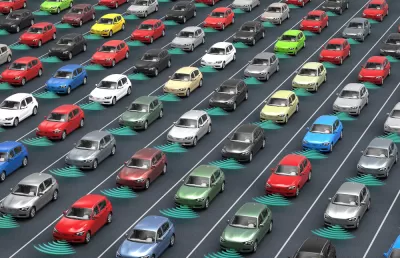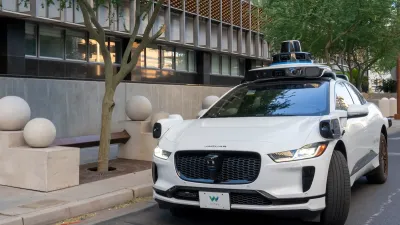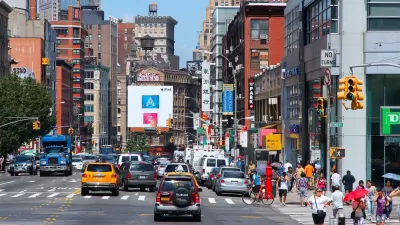It's not all free flowing commutes and world peace in an autonomous vehicle-filled future.

A new study published by the Union of Concerned Scientists points out the potential negative outcomes of self-driving car technology, and lists policies that could ensure benefits for more people.
The potential negative outcomes are pretty bad, however, including worsening congestion and increasing inequality.
Dan Robitzski shares news of the study in an article for futurism, and here's his summary of the potential negative outcomes of massive adoption of autonomous vehicle (AV) technology: "Ultimately, the research suggests that introducing autonomous vehicles to the area would increase traffic by 66 percent, and that the added congestion would likely benefit the wealthy and take opportunities away from low-income communities."
The report includes a number of recommendations that could help mitigate these potential negative outcomes, including pooling rides (potentially by fining single-passenger trips) and investing in public transit that can avoid the new congestion induced by AVs.
FULL STORY: Scientists Warn Self-Driving Cars Could Worsen Inequality

Planetizen Federal Action Tracker
A weekly monitor of how Trump’s orders and actions are impacting planners and planning in America.

Chicago’s Ghost Rails
Just beneath the surface of the modern city lie the remnants of its expansive early 20th-century streetcar system.

San Antonio and Austin are Fusing Into one Massive Megaregion
The region spanning the two central Texas cities is growing fast, posing challenges for local infrastructure and water supplies.

New Atlanta Law Requires ‘Cool Roofs’
Painting roofs with reflective coatings can significantly reduce indoor temperatures and improve energy efficiency, sometimes at a lower cost than traditional roof treatments.

MTA Poised to Break Ridership, On-Time Service Records
New York City’s transit system saw strong increases in ridership and improvements in service quality in the first half of 2025.

Bend, Oregon Zoning Reforms Prioritize Small-Scale Housing
The city altered its zoning code to allow multi-family housing and eliminated parking mandates citywide.
Urban Design for Planners 1: Software Tools
This six-course series explores essential urban design concepts using open source software and equips planners with the tools they need to participate fully in the urban design process.
Planning for Universal Design
Learn the tools for implementing Universal Design in planning regulations.
planning NEXT
Appalachian Highlands Housing Partners
Mpact (founded as Rail~Volution)
City of Camden Redevelopment Agency
City of Astoria
City of Portland
City of Laramie





























